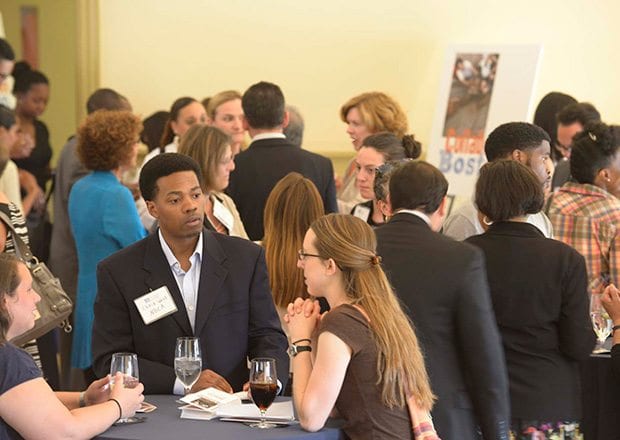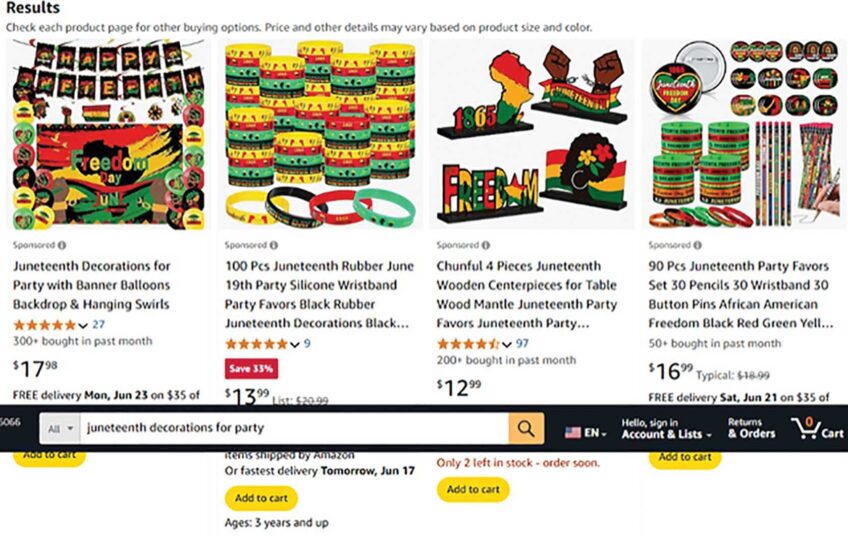
The Boston Foundation is gearing up for year two of its Collaborate Boston grant program and is looking to give a total of $100,000 to resident-led efforts to strengthen the Boston neighborhoods of Dorchester, Hyde Park, Mattapan and Roxbury.
Through the end of the month, the Boston Foundation is accepting proposals from collaborations between nonprofit organizations, businesses and the city or government that are tackling pressing needs in the community. In particular, the focus is on the Fairmont corridor and ensuring that local residents and businesses are positioned to take advantage of the growing economic opportunity brought by development along the MBTA line.
Collaborate Boston will award $25,000 grants to four proposals.
Last year, the program handed out $50,000 a piece to two proposals that addressed supporting boys and young men of color: the Codman Square Brotherhood Project and Black and Latino Boys at the STEM of Success. The foundation’s plan is to address different issues every year as it moves forward with the Collaborate Boston program.
“Community foundations have a unique opportunity to bring together groups large and small to solve local and regional problems,” said Paul S. Grogan, president and CEO of the Boston Foundation. “We hope that Collaborate Boston will expand those cooperative efforts to new individuals, organizations and others who have innovative ideas to achieve a collective impact on the issues that matter most to them.”
According to Boston Foundation Senior Director Jennifer Aronson, a crucial factor to the grant program is that the proposals utilize the different sectors — nonprofit, private business and government — to tackle a community need. She said the Boston Foundation believes this is the best way to succeed.
“The idea behind Collaborate Boston is we can all agree on the challenges but philanthropy doesn’t have all the answers. We really need the community to work with us to provide answers and we will provide the capital,” Aronson said. “It is not so much about innovation, because there is already so much innovation going on in these communities — it is about collaboration to make these things happen.”
“We are looking for powerful ideas that are going to make a difference in the community,” she added.
Last year, Collaborate Boston had 70 proposals and the process reaffirmed the Boston Foundation’s belief that different sectors working together could have the most success in tackling the pressing needs the city’s neighborhoods face, according to Aronson.
“We found that the most powerful collaborations, though our experiences last year, were those where there was really strong trust between the collaborating partners,” she said. “We want real collaborations — the partners know each other, they trust each other, they both want the same things.”
The proposals can be existing collaborations that need more funding to move forward or entirely new projects.
Collaborate Boston proposals will be judged by an external advisory panel and about a dozen finalists will be chosen. The finalists will then have the summer to develop the ideas further and submit them back again by the end of August. The panel will examine the proposals again and interview the finalists in September. Four winners will be selected in early November.
For last year’s winners, Collaborate Boston has proven to be a strong boost to their efforts.
Black and Latino Boys at the STEM of Success — a collaboration of the Boston Public Schools Achievement Gap Office, Latino STEM Alliance, the Center for STEM Education at Northeastern University and Suffolk Construction — created and supported robotics teams of 10 boys at several elementary and middle schools in Roxbury, Dorchester and Mattapan and help them compete in For Inspiration and Recognition of Science and Technology competitions.
The goal was to build upon the four program goals of the 10-Boys Initiative, providing academic tutoring and support, creating opportunities for social and emotional growth, providing leadership opportunities and engaging parents of BPS students that are within just a few points of MCAS proficiency.
The funding from Collaborate Boston made it possible to hire and train teachers, recruit volunteers, and to purchase equipment.
The Codman Square Brotherhood Project is a collaboration of the Codman Square Neighborhood Development Corporation, Boston Project Ministries, Concerned Black Men of Massachusetts, the Dorchester Arts Collaborative and the Boston Police Department District B-3. The goal of that collaboration is to create a “brotherhood” of African American and Latino males, primarily ages 10 to 14, in the Codman Square/Four Corners neighborhood that grows out of the Millennium Ten community organizing initiative.
The funding was targeted for the launch of the first stage of a youth jobs hubs, created as a collaboration among community organizations, local business owners, and residents in Codman Square.
Aronson said last year’s winner are great examples of the types of projects the Boston Foundation wants to fund and that this year’s Collaborate Boston will back equally as important efforts.
“These ideas exist — great ideas exist. People know what would make the communities better and they might simply not have the time or the opportunity or the capital to make it happen,” she said.
Founded in 1915, the Boston Foundation is one of the largest community foundations in the nation, with net assets of close to $900 million. In 2013, the foundation and its donors made nearly $98 million in grants to nonprofit organizations and received gifts of $130 million.






